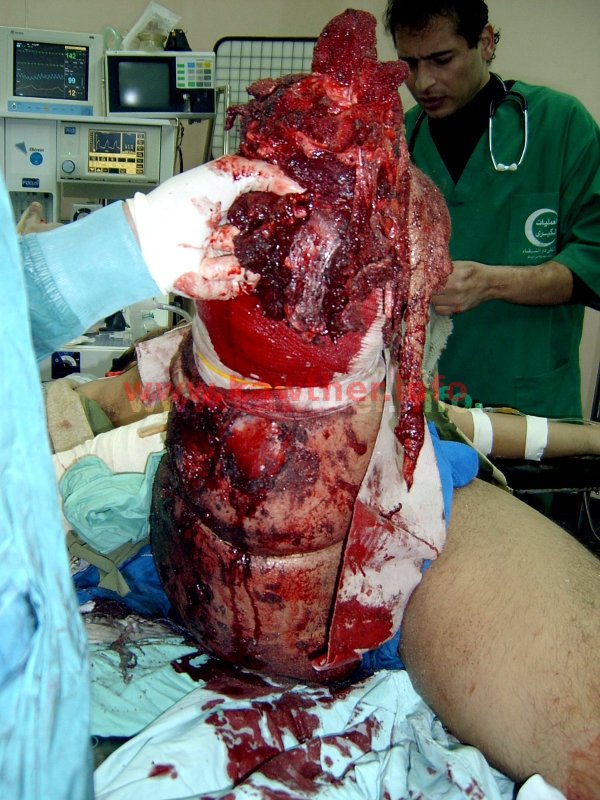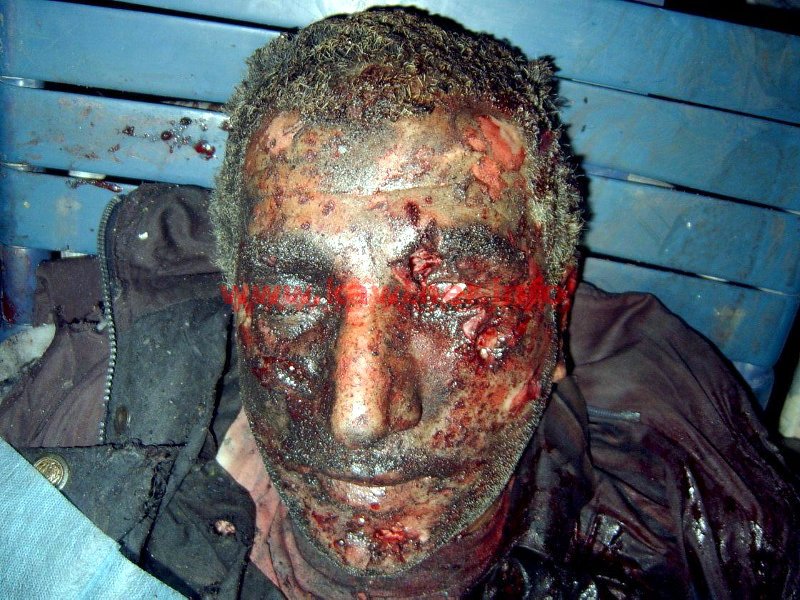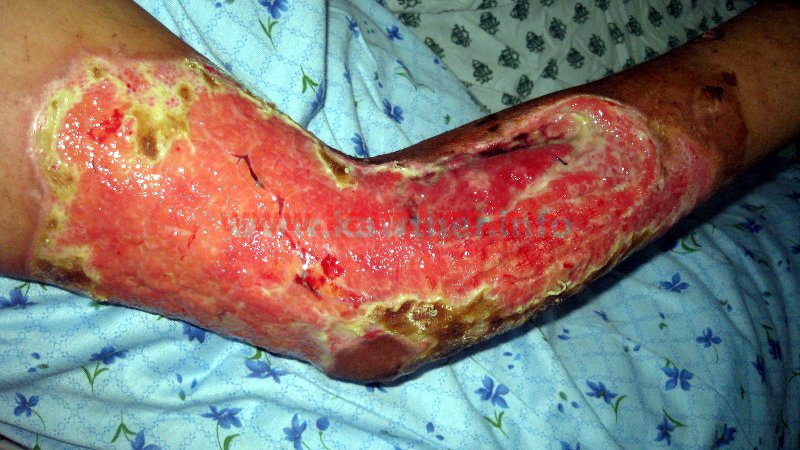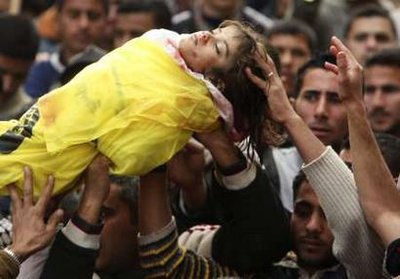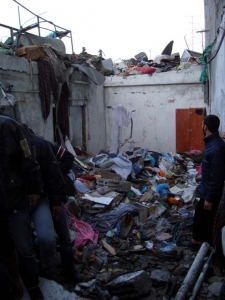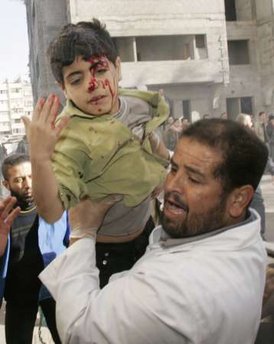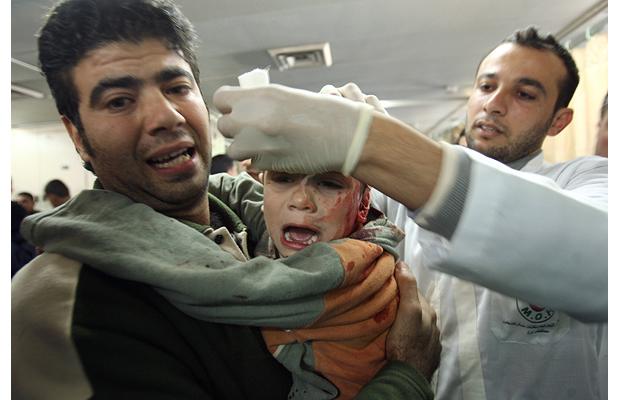Truly Disgusting - the West in Kosovo
| Aleksandar PAVIC | 11.02.2012 | | |||
In the tantrums thrown by the
Western powers in the wake of the Russo-Chinese veto of their UN
Security Council resolution on Syria, the US’s UN Ambassador, Susan
Rice, expressed «disgust» at these two states’ behavior. In addition to
these kinds of «hysterics» – as Russian Foreign Minister Lavrov so aptly
described them – being calculated to rally the global media further
against the two Eurasian giants, they also serve the purpose of
directing attention away from the West’s own disastrous intervention
track record. On February 8, just four days after the failed Syria
resolution, the UNSC had a chance to discuss another Western
interventionist «success story» – Kosovo.
Many might think that Russia’s and China’s reluctance to give a green
light to foreign intervention in Syria is mostly based on the recent
Libya (and Iraq and Afghanistan) experience. That is only partly true.
For the occupied Serbian province of Kosovo has been under NATO/EU
control for more than 12 years now – since June 10, 1999 – and offers a
much better view of what Western intervention brings than the
still-fresh, although already clearly disastrous, Libyan case.
The first thing that struck attention was the fact that the Assistant
Secretary-General for UN Peacekeeping Operations, Edmond Mulet, referred
to the situation in Kosovo at February 8 session as one of «fragile
calm.» Remember – this is more than 12 years after Western powers have
taken complete control of the territory, and almost four years since
they have unilaterally recognized its «independence.» With tens of
thousands of Western «peacekeepers» on the ground for over a decade and
several billion dollars spent – we have nothing more than «fragile
calm.» A «success story» – this is not.
Vuk Jeremić, the Foreign Minister of Serbia, whose province Kosovo
still is according to UNSC Resolution 1244 (as well as Resolutions 1160,
1199, 1203 and 1239, all of which the Western powers have trampled in
their unilateral recognition of the breakaway province), characterized
the situation in Kosovo as «ghetto and barbed wire,» with the Serbian
population being «the most imperiled in Europe.» Practically none of the
over 200,000 people expelled from Kosovo since NATO and the EU have
taken over have returned. The 100,000 or so Serbs and non-Albanians that
have remained are waging a daily battle, not just for survival but for
basic human rights. Pointing to this state of affairs, the Serbian FM
cited reports of international organizations such as Human Rights Watch,
OSCE and Transparency International, which talk of rampant corruption,
discrimination against non-Albanians, politically influenced judiciary,
inadequate witness protection, etc., while the European Commission has
qualified the fight against corruption and organized crime as
«inefficient.»
Economically as well, Kosovo is a basket case, to put it mildly. The
unemployment rate is variously estimated at 40-60%, or even 70%. The
territory has been identified by various international agencies as the
main European center for the distribution of heroin originating in
Afghanistan, as well as a center for money laundering and human
trafficking. It has been referred to more than once as «Afghanistan in
Europe.» In addition, the top of its ethnic Albanian leadership is
currently under international investigation for human organ trafficking.
A report by Council of Europe human rights rapporteur Dick Marty
published in December 2010 named Kosovo «prime minister» Hashim Tachi as
the head of a «mafia-like» group, responsible for smuggling human
organs, drugs and weapons. Marty accused the international community
[i.e., leading NATO/EU states] of failing to act on the intelligence
they possessed. According to his report, Thaci and his accomplices
carried out «assassinations, detentions, beatings and interrogations»
dating back more than a decade. Some members of his group are also
accused of smuggling unfortunate Serb prisoners into Albania after the
1999 Kosovo war, where they were killed and their organs harvested.
At the February 8 UNSC session, Serbia, Russia and China renewed their
calls to place the investigation of this morbid crime under the auspices
of the UNSC. However, as has been the case for almost a year, the US
and other Western Security Council members, rejected such calls,
preferring to keep the investigation under EU, i.e., their own control.
At a previous UNSC session in December 2011, Russia’s UN ambassador
Vitaly Churkin was compelled to remark that Russia «does not understand
why our Western colleagues in the UN refuse to implement» such a
measure, while Serbia’s foreign minister, Vuk Jeremić added that «some
[read Western] UN Security Council members are strongly opposed to the
adoption of a resolution [calling for a UNSC-supervised investigation]
proposed by Serbia,» calling it a «moral abdication before criminals and
war criminals.» China has also backed Russia’s and Serbia’s efforts.
Certainly, one of the keys to this sort of «disgusting» behavior can be
found in the startling admission made at the end of January by former
Chief Prosecutor for the International Tribunal for war crimes in The
Hague (ICTY), Carla del Ponte. In an interview given to the Serbian
weekly «Nedeljnik,» she charged that «NATO and UNMIK [the UN’s civilian
Kosovo mission] prevented an investigation of the organ trafficking
charges» and that, in addition, someone in the hierarchy had ordered the
evidence destroyed. Obviously, an independent investigation under UNSC
auspices would open up a highly embarrassing can of worms for the
Western «humanitarians.»
In any case, Western «hysterics» regarding Syria are old hat to those
who’ve been watching similar performances being played in the Balkans
over the past two decades: first comes the Western media frenzy,
followed by calls from Western capitals that «something must be done,»
followed by threats, sanctions and, lastly, foreign [i.e., NATO/EU]
intervention and the installation of dysfunctional, kleptocratic,
incomparably worse regimes, such as Thaci’s «Kosovo» mafia-state.
Thus, when one reads of «unverified reports» of atrocities allegedly
committed by the Syrian authorities, the first reflex ought to be –
let’s verify the reports first – especially as the Arab League Observer
Mission had detected the presence of an unidentified «armed entity»
(which is certainly one of the reasons why its report has been rejected
not just by the West but by the very states that sent it) that was
responsible for provoking armed response from government forces.
However, on the heels of the first thought should come a second – who
would do the verifying? Just before the NATO bombing of Serbia in 1999,
Western «observers/verifiers» came into the Kosovo province under the
auspices of the OSCE, led by another US diplomat, William Walker, whose
previous experiences included (democratically?) suppressing
investigations into death squad killings of Jesuits in El Salvador
during the 1980s, and accompanied by Western reporters. The result? The
targets that were subsequently bombed were precisely located and marked
by the «observers» (a nice name for reconnaissance agents, as it turned
out) – while the Western media, with the help of several fictional
«massacre stories» helped prepare the pretext for the almost 80-day
bombing that ensued a few weeks later. Can anyone doubt that something
similar is being planned for Syria? Can anyone blame Syrians that do not
wish to become «Afghanistan of the Middle East?»
That is why it is vitally important for Russia, China and all the
countries that support them, to succeed in ensuring a balanced and,
above all, sustainable solution to the Syrian crisis, one that involves
the active participation of the entire Syrian public, whose outcome will
not be the simple installation of purportedly «pro-Western» thugs. It
does not, however, appear that Western politicians and media are willing
to give either Russia, China, or the Syrian people this opportunity.
As status quo states that respect international law – one of whose
chief principles is non-interference in other countries’ affairs –
Russia and China are once again at a clear disadvantage. They have been
put on the defensive by the extremely aggressive Western global media
apparatus. There is no country in the world – and there has never been –
whose government does not have flaws. But there has never been a media
force that is able to exploit them to such an extent as today’s Western
global media – while simultaneously ignoring cases such as Kosovo, which
no longer suit their immediate interventionist purposes. It seems,
thus, that, if they do not draw a line in the sand on Syria – Russia and
China will just be faced with a similar scenario elsewhere – closer to
their own borders. So perhaps it’s time for them to be more active and
aggressive not just in defending the status quo, but in pointing to the
West’s own sordid interventionist track record. The «disgusting» case of
Kosovo is just one of the good places to start.
-----------------------------------------
Will Kosovo organ trafficking case be put on wrong track?
---------------------------------------
|
















